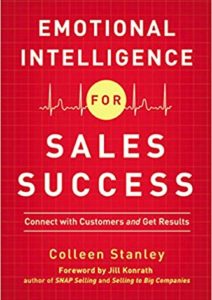As you might know, an “elevator pitch” is a selling tool and conversation starter that very briefly but powerfully describes your business, product or services. It answers a prospect’s question of, “What does your company do?”
Generally, a salesperson’s answer is a combination of bragging and self-focus–or a pitch that sounds exactly like one of their competitors’. “We’ve been helping organizations launch new products for 50 years.” Or, “We’re the world’s largest IT and business process consulting firm.” (Can you grab me some coffee? I’m dozing off!)
A finely crafted elevator pitch is important because how a salesperson starts that conversation is going to determine how well it progresses. It’s either going to be a conversation about value, or a transactional, vendor conversation.
There are basically three problems with the types of examples illustrated above:
1. These elevator pitches aren’t connecting to the brain. In Made to Stick, authors Chip and Dan Heath discuss six principles of why some ideas stick and other don’t. Concreteness is one of those principles. Brains are wired to remember concreteness and most elevator pitches are ambiguous. For example, what the heck is “business process consulting”?
How to fix: Create a value proposition that paints a picture of your services. “We help companies install reliable systems that don’t crash every time an enhancement is rolled out.”
2. Benefit selling rather than pain selling. Most elevator pitches focus on the positive, preaching the features and benefits of their products and services. That’s nice. But research shows that people move two to three times faster to avoid pain rather than achieve gain.
How to fix: Focus on the problems you solve for your customers. No one cares about what you do. They care about problems you solve. Instead of talking about what you do, talk about the problems associated with product launches. “We help companies that are falling behind their competitors because they keep designing products that no one wants to buy.”
3. Generic elevator pitches. This one is a real conversation killer. Most sales organizations do not have customized, documented elevator pitches. Instead, there are a few one-size-fits-all elevator pitches that don’t resonate with a potential buyer.
How to fix: Create elevator pitches customized to the industry, buying influence, and product or service. “We work with CEOs in the construction space that are concerned about poor profits due to project cost overruns caused by poor planning or bad job estimates.”
Elevator pitches are one of the most important tools for a salesperson, whether you are in new-business development or account management. If you want to escalate sales, then elevate the content of your elevator pitches.
Good Selling!
Pipeliner CRM empowers salespeople to pitch with accuracy.Get your free trial of Pipeliner CRM now.













Comments